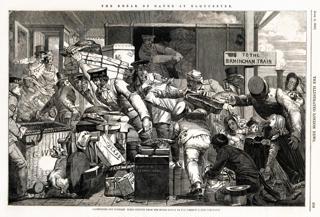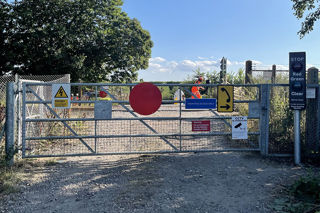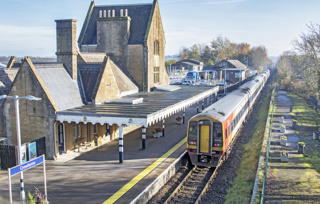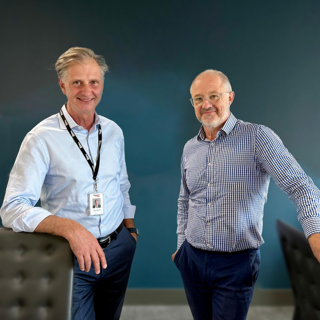I’m writing this at the opening day of Rail Live, our annual exhibition and seminar at Porterbrook’s Long Marston Rail Innovation Centre.
The sun is shining, thousands of visitors have streamed in for the first day - 4% more than last year which itself was a record year. The atmosphere is quite jolly and the mood of the industry is positive right now.
I’m writing this at the opening day of Rail Live, our annual exhibition and seminar at Porterbrook’s Long Marston Rail Innovation Centre.
The sun is shining, thousands of visitors have streamed in for the first day - 4% more than last year which itself was a record year. The atmosphere is quite jolly and the mood of the industry is positive right now.
For an industry so buffeted by politics and so reliant on the public sector in various ways, this sunny outlook could appear somewhat surprising.
It is entering a new era of restructuring and public ownership, yet it is being buoyed by an optimism that’s far from inevitable.
In our next issue, our columnist Christian Wolmar admits that it’s all too easy to become cynical after decades of commenting on the rail industry’s fortunes. Every new move you’ve seen before. Every bright idea has been tried before. Been there, done that, it didn’t work - it’s an easy pessimism to fall into.
But he is resolved to be more optimistic that emerging ambitious transport schemes can this time succeed where others failed to get the Treasury support they needed.
So, what is there to smile about?
The last few weeks have brought news of £15.6 billion for mainly city transport projects, followed by over £10bn for capital investment in infrastructure around England.
Then came confirmation of the news (broken by RAIL) of how the cost of HS2 is rising again, with further delays.
Shadow Rail Minister Jerome Mayhew played down the Spending Review announcements, claiming there was nothing new in it compared with the previous government’s Network North statement in October 2023.
Re-announcing policies and commitments has become a bit of a government habit over several decades, whatever the political persuasion.
But in the current economic environment and under the current budget pressures, even re-announcements feel like they’re worth something. No commitments, especially from previous governments, can be taken for granted.
Chancellor Rachel Reeves had made that much clear on her first major policy event after last summer’s election, blaming the previous government for a financial black hole that it would have to fill with cuts and taxes.
And since then, things have worsened, with international events placing further strain on public finances.
NATO members in Europe came under pressure to invest much more in defence, and the UK has committed to a significant boost in defence spending.
Combined with keeping budgets such as health ring-fenced, this left little or no wriggle room for growth in other department’s budgets in a spending review.
So, without getting into debates about what exactly is new and what isn’t, even avoiding scrapping previous programmes and projects feels like an achievement these days. Even a delay seems like an achievement compared with a cancellation.

That’s why the rail industry has generally welcomed the investment announcements.
As Howard Johnston notes in his analysis on the tram-dominated city investments, some lucky mayors can feel like Christmas has come early.
But he questions how far that money will really go. Are the budgets enough to do what is needed? Howard’s analysis delves into the detail behind the headlines.
Some of the Spending Review’s messages could look like public crowd pleasers. But it’s good to see it sticking to its low-carbon ambitions.
Yes, there is millions (if not billions) for fixing potholes, but there is also something for electric vehicle infrastructure. While these items may not benefit rail directly, sticking to net zero ambitions is good for the rail industry and the economy in the long run, as well as the environment.
However, these capital investment commitments also came with declining day-to-day operating budgets for rail, with subsidies expected to fall over time.
On the surface, this looks like bad news for passengers. But under the government’s logic, it’s not as bad as it seems.
The government is confident that it will make operational savings through efficiencies from nationalisation. Clearer customer offerings and better provision through investment could also help drive revenue growth.
And let’s not forget what new technologies can bring to the railway. They can improve performance, safety, service, and (crucially for the times in which we find ourselves) even save money.
The latest of these new innovative technologies are on show here, under the baking sun at Rail Live.
Gallery: highlights from Rail Live
[gallery id=180]
Video highlights from Rail Live 2025
Login to continue reading
Or register with RAIL to keep up-to-date with the latest news, insight and opinion.


















Login to comment
Comments
No comments have been made yet.